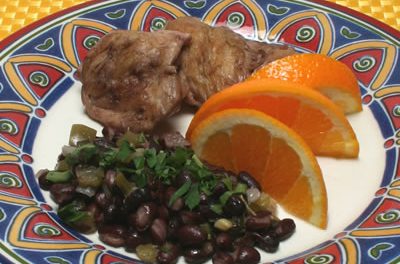People often ask: Is it okay to eat fruit if I have diabetes? If you have diabetes, you might wonder whether or not it’s safe to enjoy fruit. Given that fruits contain natural sugars, it’s a common concern.
The reality is, however, that fruit can be a healthy part of your diet, even if you have diabetes – including gestational diabetes, type 1 diabetes and type 2 diabetes.
Here’s what you need to know about eating fruit as a diabetic.
Understanding Fruit and Blood Sugar Levels
Fruits contain carbohydrates, which can affect blood glucose levels. However, the sugar in fruit is not the same as added sugars found in processed foods. The natural sugars in fruit come with fiber, vitamins, minerals, and antioxidants that are beneficial for overall health. Fiber, in particular, slows down the digestion and absorption of sugar, helping to stabilize blood sugar levels.
Choosing the Right Fruits to Eat with Diabetes
While all fruits can fit into a diabetes-friendly diet, some are better choices than others. Here are a few tips for selecting fruits when living with diabetes:
Opt for Whole Fruits:
Whole fruits are fruits that are consumed in their natural, unprocessed form, without any alterations like peeling, juicing, or drying. Examples include: Apples; Bananas; Berries (strawberries, blueberries, raspberries); Oranges; Grapes; Pears; Peaches.
Whole fruits are more beneficial than fruit juices or dried fruits. Juices often lack fiber and can contain concentrated sugars, which may lead to rapid spikes in blood sugar. Dried fruits are calorie-dense and can also have added sugars.
Look for Low-Glycemic Fruits:
The glycemic index (GI) measures how quickly a food raises blood sugar levels. Lower-GI fruits, such as berries, cherries, apples, and pears, tend to have a gentler effect on blood sugar. These fruits are great options for a diabetic diet.
Some low-glycemic fruits that are generally good options for managing blood sugar levels include: Berries (strawberries, blueberries, raspberries, blackberries); Cherries; Plums; Apples; Pears; Peaches; Grapefruit; Oranges; Kiwi; Avocado (though technically a fruit, it’s low in sugar and high in healthy fats). These fruits typically have a glycemic index (GI) of 55 or lower.
Watch Portion Sizes:
Even healthy fruits should be eaten in moderation. Understanding serving sizes can help manage your carbohydrate intake. A small piece of whole fruit, like a medium apple or a half-cup of berries, is generally a good serving size.
Incorporating Fruits into a Diabetic Diet
Here are some practical ways to include fruits in your meals:
Breakfast: Add berries or sliced banana to your morning oatmeal or yogurt. This adds flavor and nutrition without excessive sugar.
Snacks: Pair fruit with protein or healthy fats. For example, apple slices with nut butter or a small handful of nuts with mixed berries can create a balanced snack that helps stabilize blood sugar.
Salads: Toss some fruit into salads for a refreshing twist. Adding sliced strawberries, mandarin oranges, or avocado can enhance both flavor and nutrients.
Smoothies: Blend a small portion of fruit with spinach or kale, Greek yogurt, and a source of healthy fat like avocado or nut butter for a nutrient-packed smoothie.
Monitoring Your Blood Sugar Level Response to Fruit
Everyone’s body responds differently to foods, including fruit. It’s a good idea to monitor your blood sugar levels to see how different fruits affect you personally. This can help you make informed decisions about what and how much to eat.
Consult with a Diabetes Professional
If you’re unsure about how to incorporate fruit into your diet, consider consulting a registered dietitian or diabetes educator. They can help you develop a personalized meal plan that includes fruit while managing your blood sugar levels effectively.
What is the difference between a registered dietitian and a diabetes educator? A registered dietitian (RD) is a nutrition expert with specialized training in dietetics who provides comprehensive nutritional counseling and meal planning for various health conditions, including diabetes. In contrast, a diabetes educator focuses specifically on helping individuals manage their diabetes through education about the disease, self-monitoring techniques, and lifestyle modifications. While RDs may also specialize in diabetes management, diabetes educators typically have specific training and certifications related to diabetes care.
So the short answer to the question “Is it okay to eat fruit if I have diabetes” is:
Yes! It is perfectly okay to eat fruit if you have diabetes. The key is to choose whole, low-glycemic fruits and be mindful of portion sizes. Fruits can add essential nutrients and flavor to your diet without causing harmful spikes in blood sugar when consumed wisely. By understanding how to integrate fruit into your meals and snacks, you can enjoy their health benefits while maintaining good blood sugar control. So go ahead – embrace the variety and goodness that fruits can bring to your diabetes management plan!
Image source: Ahmad Affandi Lubis











